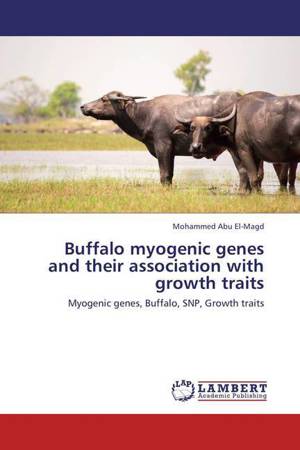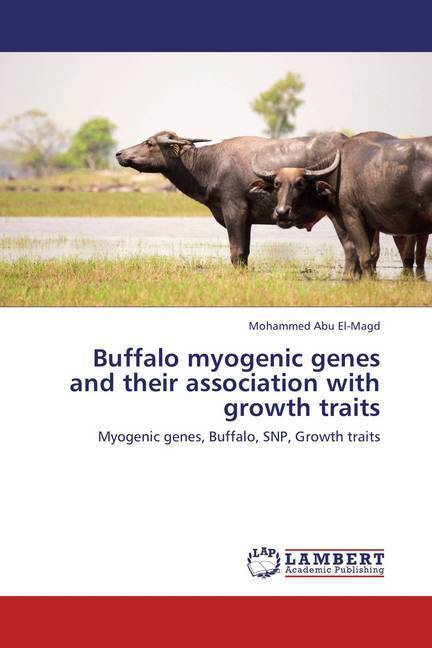
- Afhalen na 1 uur in een winkel met voorraad
- Gratis thuislevering in België vanaf € 30
- Ruim aanbod met 7 miljoen producten
- Afhalen na 1 uur in een winkel met voorraad
- Gratis thuislevering in België vanaf € 30
- Ruim aanbod met 7 miljoen producten
Zoeken
Buffalo Myogenic Genes and Their Association with Growth Traits
Myogenic genes, Buffalo, SNP, Growth traits
Abu El-Magd Mohammed
Paperback | Engels
€ 54,45
+ 108 punten
Omschrijving
Although there are many advantages to raising water buffalo, these animals remain underutilized and show sub-optimal meat production potential. Therefore, genetic improvement of these animals is of economic importance. The objectives of the present study were to; a) detect SNPs in IGF1, IGF1R and MRF4 genes of Egyptian water buffalo, b) calculate gene and genotype frequencies of these SNPs, and c) determine the association between these SNPs and ADG. To achieve these objectives blood and skeletal muscle samples from two hundreds pure Egyptian water buffalo were collected and then DNA and RNA were extracted. Clones containing the prospective SNPs were amplified using PCR and RT-PCR and the SNPs were then detected using SSCP followed by direct sequencing. A novel A280G SNP was detected in exon4 of buffalo IGF1 gene. The homozygous genotype AA of this SNP is significantly associated with ADG at the age from 12 to 18 month. In addition, two novel SNPs, C261G and G263C, were detected in exon 21 of buffalo IGF1R. The heterozygous genotype GC of these two SNPs is significantly associated with ADG at the age from birth to 6 months. However, the novel MRF4 C77T SNP does not influence growth
Specificaties
Betrokkenen
- Auteur(s):
- Uitgeverij:
Inhoud
- Aantal bladzijden:
- 112
- Taal:
- Engels
Eigenschappen
- Productcode (EAN):
- 9783659437007
- Verschijningsdatum:
- 27/07/2013
- Uitvoering:
- Paperback
- Formaat:
- Trade paperback (VS)
- Afmetingen:
- 152 mm x 229 mm
- Gewicht:
- 176 g

Alleen bij Standaard Boekhandel
+ 108 punten op je klantenkaart van Standaard Boekhandel
Beoordelingen
We publiceren alleen reviews die voldoen aan de voorwaarden voor reviews. Bekijk onze voorwaarden voor reviews.











